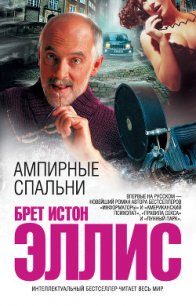[The Girl From UNCLE 01] - The Global Globules Affair - Latter Simon (читаемые книги читать txt) 📗
It was annoying not to be able to use even their personal ear radios. These could not be overheard, but ultra-sensitive equipment might reflect the signals. But April ceased to be annoyed at this when, as she waited by the fence, she saw one of the flower beds begin to move apart in the center. Moonlight on the bed gave her a clear view, despite the fact that this section of the fence was shadowed by the buildings.
From the gap there a pole began to rise, looking at first sight like a young fir tree. A faint whine of hydraulics, a slight hiss, and the pole stopped at about the thirty-feet height. Fan-shaped antennae "grew" from near its top. TV and radio booster aerials sprouted below these. Then at the very top a "soup-dish" radar bowl came up like a conjuror's bunch of flowers that appear out of his sleeve, springing open to assume its correct shape.
April goggled at it. "I sure hope lover boy sees this," she muttered. "With that mast they could monitor my grumbling appendix."
Mark certainly saw it—from under the belly of a goat as he inched across a patch of moonlight towards the shadow of the stables. Reaching this shelter he checked his watch, to find he had time in hand. He surveyed the mast. "Take a look at that, me old darling!" he whispered. "I reckon the C.I.A. or the F.B.I. boys made a shrewd guess about the electronic potential around here."
He was about to break open the lock on the stables' main door when a couple of goats ambled past him, having come through the hole he had made in the fence. Ignoring him, they went on across the stable yard, over a grass patch and along the path curving around the house.
"Ye gods! A goat radar, no less! Well, thanks a lot!" He drew his gas gun and followed them. No booby traps. He was at the corner of the house when he saw his mistake. By a reflection of moonlight as a goat passed it, the glassy eye of a photocell set amid some wall greenery betrayed its presence.
Mark dropped to one knee, eyes keened for more photocells. There should be a pattern of them to identify the size of objects caught in their beam. He saw the next highest; then saw something else. The window nearest to him was curtained by a sheet of the metal material and was stretched across the inside frame. A tiny chink of yellow light showed at one corner; otherwise the window reflected only moonlight.
Crouching to keep his body at the same height as the animals, he followed the goats around the path. He was nearly caught when a door opened. He heard the snick of the catch, darted close to the house wall, dropped flat. No light flowed from the open door, but the man there was clearly etched against the sky. Even his gun was in sharp relief. He swore in a guttural voice. "These goddamn goats are loose again. That's all it was. Cut out the scanners and send Longess out to round them up." The door closed.
Mark exhaled slowly. "Scanners too!" He blew a kiss towards the goats, who now were scoffing flowers from the large bed in which the aerial mast was set. "I'll never call you 'stinkers' again!" He eased upright, then sped on soundless feet across the front of the house, around the patio, and up the side of the pool. He took a chance that April was there and leapt for the patch of shadows. She almost rammed the gas gun nozzle into his ear.
"Some horse!" she whispered from under her mask.
"Some break! The goats got loose. I didn't need the horses. No booby traps, darling—just masses of cells and scanners. They've switched off until—ah, here be is! Wait here!" A man had come out from this end of the house.
Shadow leaping, silent—a swift pad-pad of feet balancing, body poised, arms reaching.
The man halted, swung around, mouth open. Eyeballs white, wild against the moonlight, glazing fast as flexed-steel hands struck once, twice. The senseless figure crumpled. Human sack among the flowers. The goats went on eating.
April anticipated the next move. A small side door was open. Mark joined her. They stepped inside, closed the door softly. A lobby, Spanish style, wall benches, hooks, overalls hanging. Riding boots, sand-yellow, a straw sombrero, the smell of garlic. Then a door, light-glow slanting through. She tiptoed past him, peered, backed up, signaled three. He nodded. They went in.
A large kitchen, fitted ranch-style, split level. Three men, cards on a plastic-topped table, were there smoking, waiting for the fourth, now sleeping among the flowers. Two were big men, one small, and they scarcely glanced up as Mark sat in the fourth chair.
"Took you long..." said one man, and broke off as the gas gun hissed.
They reared up, puking, gasping, mouths working at words which were strangled at source, then sank to the floor like jelly-babies, in all shapes.
April caught the smallest man and eased him on to the floor, steadying the tilting chair before it crashed. Mark slammed the other two over the table, patted their clothes, and drew out two guns. April bad already taken the third. She took the two from Mark, went across to the stove, and lifted a stew-pot lid. Steam eddied up. She dropped the gun inside, replaced the lid, and came back, eyes smiling.
There was a short passage before them now, high-ceilinged, one wall a whole mural, a desert scene glowing with light. On the other wall were crossed sabers, an old muzzle-loader rifle, a board with Spanish daggers akimbo. And along the pine floor was a long, narrow Jacobean antique linen chest. Mojave rugs lead to a ghastly pseudo-Moroccan archway, draped with an Indian blanket.
Beyond the drape was a large oval room, aseptic in its clinical lay-out, a ghost room, silvered with moonlight from huge picture windows. It had sound-absorbing tiles from floor to ceiling. Fluted air-conditioning vents pulsed sibilantly, loud in the emptiness, invalid chairs, their tubular chrome glistening, stood headstoning the long white graves of massage couches. There were white leather lounge chairs, canopied sun chairs, tall spindly chairs, all mocking an empty curving bar. This was the hub of the nut hatch, thought Mark. Yes indeedee.
He noticed two white doors, smooth, all smooth, with no handles, no locks, no hinges. They set to work methodically, but fast, training, experience, knowledge culled from a thousand minutes, compressed and drawn on in less than five. System, mechanism, alarms. Contacts, method, effect.
Mark made signs, not daring to use personal radios, and drew out his U.N.C.L.E. device, held it, questioning. April nodded agreement, took her cigarette lighter, adjusted it into a cutting torch. Mark traced the hair-wires, separated them, clipped on the device to one, then spat on his fingers and arced the wires. Blue light danced from finger-tip to device. A puff of white smoke, a tiny "phut"—and the alarm circuit was broken.
The torch flame burned blue-white, following the line of the alarm wires into the door post, burning deep, clean, through steel contact plate. Paint blistered in a small halo. Mark came around April, to place the palms of his hands hard on the smooth door surface, each palm holding a suction pad. The torch flame died. The blistered halo glowed half an orange bubbling, then slowly dulled to a bruise blue. The door jerked, beginning to whip back on its glides. Mark held it, saving the crashing thud when it would have hit the stops.
At the same time this action allowed an aperture for their vision and April peered through. There was a danger sign. Four—no, five—men. Noise now, too, booming out into the ghostly room. Voices, voices, voices—jabbering, murmuring; static crackling, F.M. waves pulsing sound. Mark now controlled the door with one hand, the first release impulse having gone, his head pressed against hers.



